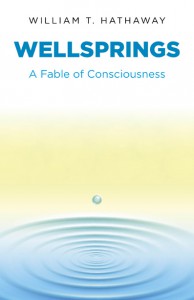
 Transcending Death
Transcending Death
By William T. Hathaway
Death. The very word casts a pall of doom. Why is it so upsetting to us? Perhaps because it conflicts with two different ways in which we know the world. We know intuitively we are immortal beings, an essence deep within us is eternal. Our sense perceptions, though, tell us we die and cease to exist. We see that the person we knew is gone. The body lying there is not them at all. Where are they? Where are we going to be when we die? How can an immortal being cease to exist? This contradiction between two kinds of knowing creates an epistemological crisis in us. What is really true?
This contradiction is bridged when we reach the state of samadhi while meditating (my experience has been through Transcendental Meditation). In samadhi our brain waves, breath rate, and blood chemistry change, and we enter a fourth state of consciousness distinct from waking, dreaming, and deep sleep. Our thoughts fall away, our mind becomes silent, and we transcend, go beyond, our everyday relative self. We leave all that behind, analogous to dying and leaving the body, and we shift into the transcendental Self, the field of consciousness that manifests and animates the universe. As our individual ego fades, we merge with this unified field where everything becomes one. But paradoxically we're still us; we don't disappear into it. Instead we experience this field as the interface between God and the universe, God and us, filled with divine love, energy, and intelligence. But we experience it usually for only a few moments; it's too overwhelming for us to stay longer. We think How wonderful! and are pulled out into the relative again, back into thoughts and boundaries. But our minds have been infused with some of the qualities of that field, and we bring those into our activity, making our life more energetic and enjoyable.
The divine energy of transcendental consciousness heals our nervous system of stresses, or karma, that we've accumulated in the past. As we progress through many experiences of leaving the small self and merging with the big Self but still maintaining an individual identity, this state of samadhi becomes familiar to us and we can stay there longer. We no longer fear death. We understand that just as we join with the transcendental field in meditation and then return from it again, we join with it in death, rest awhile, and then return in a new body filled with desires to experience relative life. But once all our desires are fulfilled and we are clear of karma (the state of enlightenment), we don't take another body. We stay there with God. Why go anywhere?
The experience of transcending through meditation gives the narrator of my new novel, Wellsprings: A Fable of Consciousness, the courage to defy death and overcome the crisis that threatens to destroy him at the end of the book. Selections are available at www.cosmicegg-books.com/books/wellsprings.
William T. Hathaway's first novel, A World of Hurt, won a Rinehart Foundation Award. His new one, Wellsprings: A Fable of Consciousness, concerns the environmental crisis. He was a Fulbright professor of creative writing at universities in Germany, where he currently lives. A selection of his writing is available atwww.peacewriter.org.
Categories:
0 comments on this article







